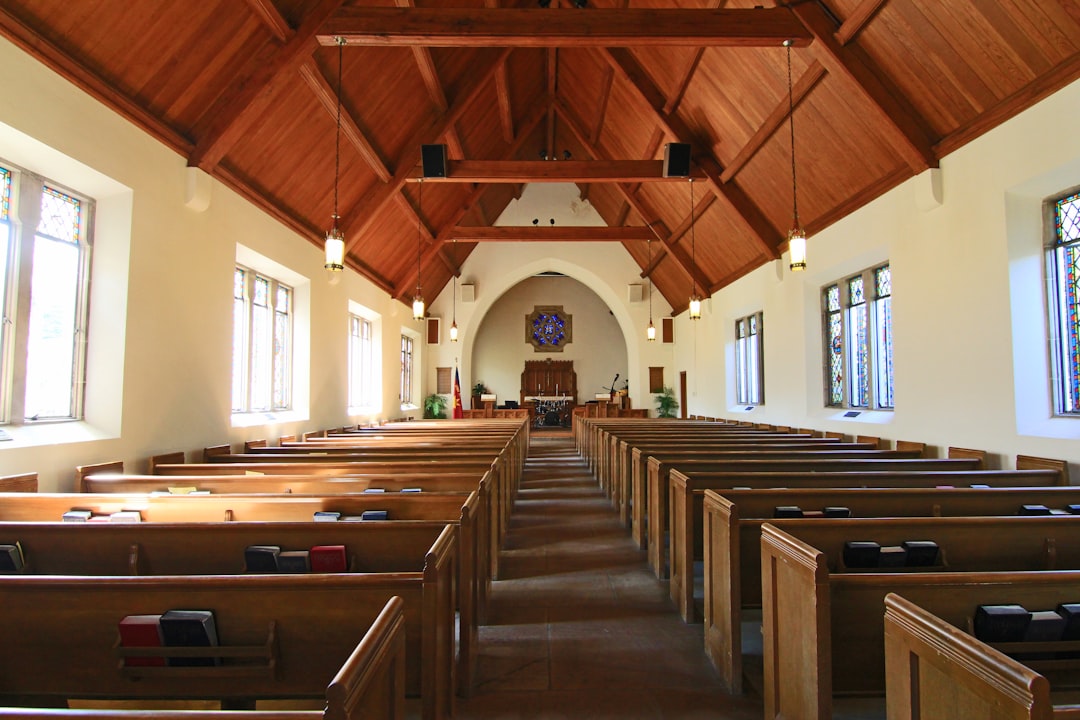In Georgia, victims of clergy abuse can find legal protection and support through specialized clergy abuse lawyers. These attorneys navigate complex laws addressing sexual misconduct by religious leaders, offering justice and compensation. Documenting experiences, gathering evidence, and contacting law enforcement is crucial. Qualified lawyers with professional associations membership, proven track records, and compassion are ideal. Supportive organizations like the National Center for Victims of Crime and CASN empower survivors to pursue justice alongside specialized clergy abuse lawyers in Georgia.
In Georgia, clergy abuse victims face unique challenges navigating both spiritual trauma and legal systems. This comprehensive guide explores Georgia’s specific laws and protections for those harmed by religious leaders. We break down the process of seeking justice, offering crucial insights for victims considering legal action against clergy abusers. Additionally, we provide resources to help identify qualified clergy abuse lawyers in Georgia and connect victims with support organizations dedicated to healing and advocacy.
Understanding Clergy Abuse: Recognizing and Defining the Issue in Georgia

In Georgia, clergy abuse refers to any form of misconduct or exploitation committed by members of the clergy against individuals within their community. This can encompass a range of actions, from sexual harassment and assault to emotional manipulation and financial abuse. Recognizing and defining this issue is crucial for several reasons. Firstly, it helps victims understand that their experiences are valid and not isolated incidents. Secondly, it facilitates the identification of patterns and trends, enabling more effective legal advocacy and support systems.
Georgia clergy abuse lawyers play a vital role in helping victims navigate complex legal processes and seek justice. They specialize in understanding the unique challenges faced by individuals who have suffered at the hands of religious leaders, ensuring that their rights are protected and they receive the compensation they deserve. By recognizing and defining clergy abuse, these professionals can provide targeted assistance, fostering healing and reconciliation for those affected.
The Legal Framework: Exploring Georgia's Laws and Protections for Victims

In Georgia, the legal framework surrounding clergy abuse offers a mix of protections and challenges for victims seeking justice. The state has specific laws in place to address sexual misconduct by religious leaders, including clergy abuse lawyers Georgia residents can turn to for assistance. These laws range from criminal statutes that penalize offenders to civil provisions enabling victims to seek compensation through lawsuits.
Georgia’s legal system provides a avenue for victims to hold accountable those who have committed clergy abuse. Clergymen found guilty of sexual offenses face severe penalties, including imprisonment and registration as sex offenders. Additionally, civil lawsuits against religious institutions or individuals can help victims secure financial relief for the trauma they’ve endured. With the aid of experienced clergy abuse lawyers Georgia has available, survivors can navigate this complex legal landscape, ensuring their rights are protected and they receive the justice they deserve.
Seeking Justice: Steps to Take When Facing Clergy Abuse

If you’ve experienced abuse at the hands of a Georgia clergy member, seeking justice is a crucial step in healing and ensuring accountability. The first course of action is to gather evidence and document your experiences. This may include written records, witness statements, or any available documentation related to the abusive conduct. It’s important to reach out to reputable clergy abuse lawyers Georgia who can guide you through the legal process while providing emotional support.
Once prepared, victims should contact local law enforcement to file a formal report. Many jurisdictions have specific procedures for handling religious-related abuse cases. A skilled attorney can assist in navigating these complexities and advocating for your rights throughout the investigation and potential prosecution. Remember, taking action is not only about seeking retribution but also about preventing similar incidents from occurring in the future.
Finding the Right Lawyer: Qualifications and Expertise in Clergy Abuse Cases

When seeking justice for clergy abuse in Georgia, finding a lawyer with specialized knowledge and experience is paramount. Victims need legal counsel who understand the unique dynamics of these cases and have a proven track record in handling similar situations. Look for attorneys who focus on religious institution accountability and have expertise in state laws pertaining to sexual misconduct within religious organizations.
Qualifications such as membership in professional associations dedicated to clergy abuse litigation, experience successfully prosecuting or defending clergy abuse cases, and knowledge of the specific legal challenges involved in these matters are significant. Victims should also consider lawyers with a track record of providing compassionate support while navigating complex legal procedures, ensuring their clients’ needs are met both inside and outside the courtroom.
Support and Resources: Organizations and Hotlines for Victims of Clergy Abuse

For victims of clergy abuse in Georgia, there are numerous organizations and resources available that offer support, guidance, and legal advocacy. These groups specialize in assisting individuals who have experienced sexual or emotional misconduct by religious leaders, providing a safe space to share their stories and take action. Many offer confidential hotlines, allowing victims to make anonymous reports, seek counseling, and connect with specialized clergy abuse lawyers in Georgia.
Some notable organizations include the National Center for Victims of Crime, which offers a dedicated helpline for spiritual abuse victims, and local support groups like the Atlanta-based Clergy Abuse Survivors Network (CASN). These initiatives aim to empower survivors, offer healing, and ensure they receive the legal assistance they need to pursue justice.





